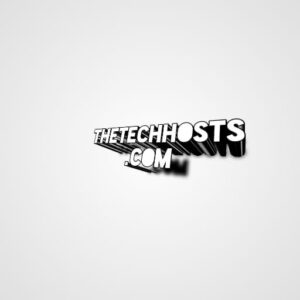The Internet of Things (IoT) continues to revolutionize industries by connecting devices, collecting data, and automating processes. As IoT technology advances, so does the need for robust development tools that can handle the complexities of building and managing IoT applications. Here, we explore the top 10 IoT application development tools to consider in 2024, highlighting their features, benefits, and unique offerings.
- Azure IoT Central
Azure IoT Central is a comprehensive IoT platform provided by Microsoft, offering a fully managed solution that simplifies the development, deployment, and management of IoT applications. It provides a range of tools for device connectivity, data storage, and real-time analytics. With built-in security features and scalability, Azure IoT Central is an excellent choice for enterprises looking to leverage the power of the cloud in their IoT solutions.
Key Features:
– Easy device connectivity and management
– Real-time analytics and dashboards
– Built-in security and compliance features
– Integration with other Azure services
- AWS IoT Core
Amazon Web Services AWS IoT Core is a powerful platform that enables secure communication between IoT devices and the cloud. It supports millions of devices and messages, allowing for real-time processing and analysis. AWS IoT Core offers features like device shadowing, rules engine, and robust security protocols, making it a preferred choice for developers looking for a scalable and secure IoT platform.
Key Features:
– Secure and reliable communication between devices and cloud
– Real-time data processing and analytics
– Device shadowing and state management
– Integration with other AWS services
- Google Cloud IoT
Google Cloud IoT offers a suite of tools for developing and managing IoT applications. It includes services like Cloud IoT Core for device connectivity, Cloud IoT Edge for edge computing, and advanced data analytics through BigQuery. With Google’s machine learning and artificial intelligence capabilities, developers can build smart IoT solutions that leverage predictive analytics and automation.
Key Features:
– Scalable device management and data ingestion
– Edge computing capabilities with Cloud IoT Edge
– Advanced data analytics and machine learning integration
– Secure data communication and storage
- IBM Watson IoT Platform
The IBM Watson IoT Platform provides a comprehensive suite of tools for IoT application development. It offers device management, data analytics, and AI-powered insights. The platform’s cognitive computing capabilities enable developers to create intelligent IoT applications that can learn and adapt over time. With strong security features and integration with IBM’s cloud services, it’s a robust choice for enterprises.
Key Features:
– Cognitive computing and AI integration
– Real-time data analysis and visualization
– Secure and scalable device management
– Integration with IBM Cloud and Watson services
- ThingWorx
ThingWorx by PTC is a leading industrial IoT platform designed for building scalable and secure IoT applications. It offers a range of tools for connectivity, analytics, and application development. ThingWorx’s model-based development approach enables rapid prototyping and deployment, making it ideal for industrial and enterprise-grade applications.
Key Features:
– Rapid application development with a model-based approach
– Advanced analytics and machine learning integration
– Secure and scalable architecture
– Extensive integration with enterprise systems
- Samsung ARTIK
Samsung ARTIK is an end-to-end IoT platform that provides hardware, software, and cloud services for IoT development. It offers a range of modules and kits for building connected devices, along with a cloud platform for data storage and analytics. Samsung ARTIK supports multiple communication protocols and is designed for secure, scalable IoT solutions.
Key Features:
– Comprehensive hardware and software solutions
– Secure data storage and analytics
– Support for multiple communication protocols
– Scalability for large-scale deployments
- Particle
Particle is a popular IoT platform that offers hardware, software, and connectivity solutions for building connected devices. It provides easy-to-use development kits, a robust cloud platform, and real-time analytics. Particle’s focus on simplicity and scalability makes it a great choice for startups and small businesses looking to quickly prototype and deploy IoT solutions.
Key Features:
– Easy-to-use development kits and modules
– Real-time device management and analytics
– Secure and scalable cloud platform
– Comprehensive connectivity solutions
- Kaa IoT Platform
Kaa IoT Platform is an open-source IoT development platform that offers a range of tools for building and managing IoT applications. It provides features like device management, data collection, and analytics. Kaa’s modular architecture allows developers to customize the platform to their specific needs, making it a flexible and cost-effective solution for IoT development.
Key Features:
– Open-source and modular architecture
– Device management and data analytics
– Customizable and scalable solutions
– Support for various IoT protocols
- Blynk
Blynk is a user-friendly IoT platform designed for prototyping and building IoT applications. It offers a mobile app builder, cloud platform, and hardware development kits. Blynk’s intuitive interface and drag-and-drop app builder make it accessible to developers of all skill levels. It’s ideal for quickly developing and deploying IoT projects with minimal coding.
Key Features:
– Intuitive mobile app builder
– Cloud platform for device management
– Support for various hardware platforms
– Easy-to-use interface and tools
- Ubidots
Ubidots is an IoT platform that provides tools for data collection, visualization, and analysis. It offers a range of features, including real-time dashboards, event management, and device connectivity. Ubidots is designed for developers looking to build IoT applications with minimal effort, providing an easy-to-use interface and extensive documentation.
Key Features:
– Real-time data visualization and dashboards
– Event management and alerting
– Simple device connectivity and management
– Extensive API and integration options
Conclusion
As the IoT landscape continues to grow and evolve, choosing the right development tools is crucial for building successful IoT applications. Each of the platforms mentioned above offers unique features and capabilities, catering to different needs and industries. Whether you’re an enterprise looking for a scalable solution or a startup aiming for rapid prototyping, these IoT development tools provide the necessary resources to turn your IoT vision into reality.

